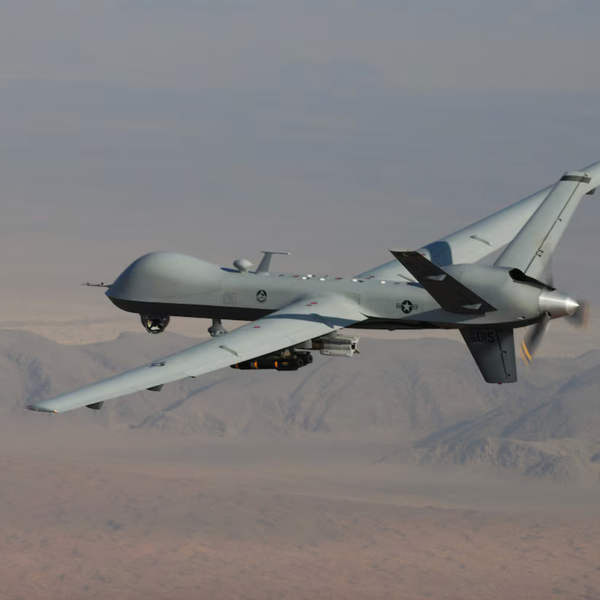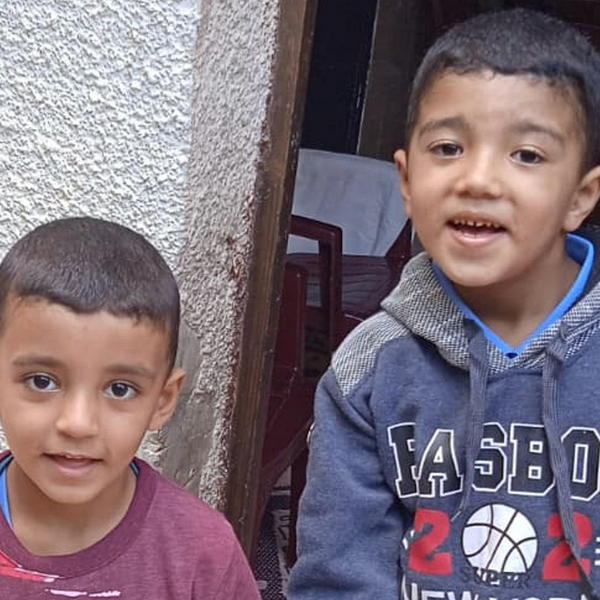Yemen Security Forces Open Fire on Opposition Activists; Dozens Killed, Scores Wounded
Police have stormed a protest camp in southern Yemen where thousands are calling for the ouster of Ali Abdullah Saleh, the country's longtime president.
Saturday's raid was the latest attempt by security forces to quell growing unrest.
Protesters say police fired tear gas and live rounds in the southern port city of Aden, wounding three anti-government protesters.
Meanwhile, two prominent members of Yemen's ruling party resigned on Saturday in protest against the killing of the anti-government protesters a day before.
"I find myself compelled to submit my resignation ... after the heinous massacre in Sanaa yesterday," Nasr Taha Mustafa, head of the state news agency and a leading ruling party member, said.
While, Mohamed Saleh Qara'a, another party member, told Reuters he had quit because of the "completely unacceptable" violence.
Saleh declared on Friday a nationwide state of emergency after a violent crackdown on anti-government protests left at least 52 people dead and scores more wounded in the capital, Sanaa.
He said that the decision to impose the state of emergency was made by the country's National Security Council, but there was no immediate indication of how long it would last.
"The National Security Council announces a state of emergency across Yemen, and a curfew is set upon armed people in all Yemeni provinces. And the security forces with the army will take responsibility for stability," he said.
He also expressed "sorrow for what happened in the university square" on Friday.
Sources told Al Jazeera the security forces opened fire in attempts to prevent protesters from marching out of the square where they were gathered. Medical sources said the death toll was likely to rise.
The attack came as thousands gathered across the country, continuing to demand that Saleh - the country's ruler of 32 years - step down.
Al Jazeera correspondents in Sanaa reported that many protesters were shot in the head and neck; most of the injured were shot with live ammunition.
Medics at a nearby medical centre told Al Jazeera almost 200 people were injured; many were in critical condition. One medic called the attack a "massacre".
Anti-government demonstrations were also held in other cities including Taiz, Ibb, Hodeidah, Aden, and Amran following Muslim midday prayers on Friday.
Government forces have previously used live fire, rubber bullets, and tear gas on anti-regime rallies, in the government's increasingly violent crackdown on protests.
Yemen, the Arabian peninsula state neighbouring Saudi Arabia, has been hit by weeks of protests set in motion by uprisings in North Africa that toppled long-serving leaders in Tunisia and Egypt and spread to the Gulf states of Bahrain, Oman and Saudi Arabia.
Saleh has maintained a firm grip on power for over three decades and has scoffed at calls to step down, saying he will only do so when his current term of office expires in 2013.
Despite violence and threats, anti-government protesters refuse to cease demonstrating until Saleh's removal.
An Urgent Message From Our Co-Founder
Dear Common Dreams reader, The U.S. is on a fast track to authoritarianism like nothing I've ever seen. Meanwhile, corporate news outlets are utterly capitulating to Trump, twisting their coverage to avoid drawing his ire while lining up to stuff cash in his pockets. That's why I believe that Common Dreams is doing the best and most consequential reporting that we've ever done. Our small but mighty team is a progressive reporting powerhouse, covering the news every day that the corporate media never will. Our mission has always been simple: To inform. To inspire. And to ignite change for the common good. Now here's the key piece that I want all our readers to understand: None of this would be possible without your financial support. That's not just some fundraising cliche. It's the absolute and literal truth. We don't accept corporate advertising and never will. We don't have a paywall because we don't think people should be blocked from critical news based on their ability to pay. Everything we do is funded by the donations of readers like you. Will you donate now to help power the nonprofit, independent reporting of Common Dreams? Thank you for being a vital member of our community. Together, we can keep independent journalism alive when it’s needed most. - Craig Brown, Co-founder |
Police have stormed a protest camp in southern Yemen where thousands are calling for the ouster of Ali Abdullah Saleh, the country's longtime president.
Saturday's raid was the latest attempt by security forces to quell growing unrest.
Protesters say police fired tear gas and live rounds in the southern port city of Aden, wounding three anti-government protesters.
Meanwhile, two prominent members of Yemen's ruling party resigned on Saturday in protest against the killing of the anti-government protesters a day before.
"I find myself compelled to submit my resignation ... after the heinous massacre in Sanaa yesterday," Nasr Taha Mustafa, head of the state news agency and a leading ruling party member, said.
While, Mohamed Saleh Qara'a, another party member, told Reuters he had quit because of the "completely unacceptable" violence.
Saleh declared on Friday a nationwide state of emergency after a violent crackdown on anti-government protests left at least 52 people dead and scores more wounded in the capital, Sanaa.
He said that the decision to impose the state of emergency was made by the country's National Security Council, but there was no immediate indication of how long it would last.
"The National Security Council announces a state of emergency across Yemen, and a curfew is set upon armed people in all Yemeni provinces. And the security forces with the army will take responsibility for stability," he said.
He also expressed "sorrow for what happened in the university square" on Friday.
Sources told Al Jazeera the security forces opened fire in attempts to prevent protesters from marching out of the square where they were gathered. Medical sources said the death toll was likely to rise.
The attack came as thousands gathered across the country, continuing to demand that Saleh - the country's ruler of 32 years - step down.
Al Jazeera correspondents in Sanaa reported that many protesters were shot in the head and neck; most of the injured were shot with live ammunition.
Medics at a nearby medical centre told Al Jazeera almost 200 people were injured; many were in critical condition. One medic called the attack a "massacre".
Anti-government demonstrations were also held in other cities including Taiz, Ibb, Hodeidah, Aden, and Amran following Muslim midday prayers on Friday.
Government forces have previously used live fire, rubber bullets, and tear gas on anti-regime rallies, in the government's increasingly violent crackdown on protests.
Yemen, the Arabian peninsula state neighbouring Saudi Arabia, has been hit by weeks of protests set in motion by uprisings in North Africa that toppled long-serving leaders in Tunisia and Egypt and spread to the Gulf states of Bahrain, Oman and Saudi Arabia.
Saleh has maintained a firm grip on power for over three decades and has scoffed at calls to step down, saying he will only do so when his current term of office expires in 2013.
Despite violence and threats, anti-government protesters refuse to cease demonstrating until Saleh's removal.
Police have stormed a protest camp in southern Yemen where thousands are calling for the ouster of Ali Abdullah Saleh, the country's longtime president.
Saturday's raid was the latest attempt by security forces to quell growing unrest.
Protesters say police fired tear gas and live rounds in the southern port city of Aden, wounding three anti-government protesters.
Meanwhile, two prominent members of Yemen's ruling party resigned on Saturday in protest against the killing of the anti-government protesters a day before.
"I find myself compelled to submit my resignation ... after the heinous massacre in Sanaa yesterday," Nasr Taha Mustafa, head of the state news agency and a leading ruling party member, said.
While, Mohamed Saleh Qara'a, another party member, told Reuters he had quit because of the "completely unacceptable" violence.
Saleh declared on Friday a nationwide state of emergency after a violent crackdown on anti-government protests left at least 52 people dead and scores more wounded in the capital, Sanaa.
He said that the decision to impose the state of emergency was made by the country's National Security Council, but there was no immediate indication of how long it would last.
"The National Security Council announces a state of emergency across Yemen, and a curfew is set upon armed people in all Yemeni provinces. And the security forces with the army will take responsibility for stability," he said.
He also expressed "sorrow for what happened in the university square" on Friday.
Sources told Al Jazeera the security forces opened fire in attempts to prevent protesters from marching out of the square where they were gathered. Medical sources said the death toll was likely to rise.
The attack came as thousands gathered across the country, continuing to demand that Saleh - the country's ruler of 32 years - step down.
Al Jazeera correspondents in Sanaa reported that many protesters were shot in the head and neck; most of the injured were shot with live ammunition.
Medics at a nearby medical centre told Al Jazeera almost 200 people were injured; many were in critical condition. One medic called the attack a "massacre".
Anti-government demonstrations were also held in other cities including Taiz, Ibb, Hodeidah, Aden, and Amran following Muslim midday prayers on Friday.
Government forces have previously used live fire, rubber bullets, and tear gas on anti-regime rallies, in the government's increasingly violent crackdown on protests.
Yemen, the Arabian peninsula state neighbouring Saudi Arabia, has been hit by weeks of protests set in motion by uprisings in North Africa that toppled long-serving leaders in Tunisia and Egypt and spread to the Gulf states of Bahrain, Oman and Saudi Arabia.
Saleh has maintained a firm grip on power for over three decades and has scoffed at calls to step down, saying he will only do so when his current term of office expires in 2013.
Despite violence and threats, anti-government protesters refuse to cease demonstrating until Saleh's removal.

